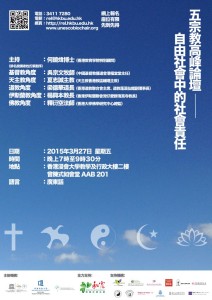Joseph Tham, Dean, School of Bioethics, Regina Apostolorum University, Rome, Italy. jtham@legionaries.org
Alberto Garcia, Director, UNESCO Chair in Bioethics and Human Rights, Rome, Italy. agg@arcol.org
Gonzalo Miranda, Professor, School of Bioethics, Regina Apostolorum University, Rome, Italy. g.miranda@arcol.org
Martha Tarasco, Board Member of the National Academy of Bioethics. Professor, Faculty of Bioethics, Anahuac University, Mexico City, Mexico.mtarasco@anahuac.mx
Open session lecturers
Adolfo Martinez Palomo, Emeritus Professor of Cinvestav, General coordinador of Consejo Consultivo de Ciencias de la Presidencia de la República, Mexico City, Mexico. amartinez@cinvestav.mx
Dalfna Feinholz, Team Leader, Sector for Social and Human Sciences, UNESCO Headquarters, Paris, France d.feinholz@unesco.org
Chris Durante, Visiting Assistant Professor, Department of Religious Studies, New York University, New York City, NY, USA. c.durante@hotmail.com
Carlos Viesca Treviño, Researcher, Department of History and Philosophy of Medicine, Responsible for Master and PhD Programs in Bioethics, UNAM, Mexico City, Mexico. cviesca@frontstage.org
Workshop paper presenters and respondents
(First on list—Main paper of a religious tradition; Second on list—Respondent from the same religious tradition; Third on list—Respondent from a differentreligious tradition)
Buddhism
Ellen Zhang, Associate Professor of Religion and Philosophy Department, Research Fellow, Centre for Applied Ethics, Hong Kong Baptist University, Hong Kong. eyzhang@hkbu.edu.hk
Soraj Hongladarom, Associate Professor of Philosophy, Chulalongkorn University, Bangkok, Thailand. hsoraj@chula.ac.th
Colleen Gallagher, Chief and Executive Director, Section of Integrated Ethics in Cancer Care, Associate Professor, Critical Care, University of Texas MD Anderson Cancer Center, Houston, TX, USA. cmgallagher@mdanderson.org
Christianity
Oscar Martinez, Professor, Faculty of Bioethics, Anahuac University, Mexico City, Mexico. ojmartin@anahuac.mx
Chris Durante, Visiting Assistant Professor, Department of Religious Studies, New York University, New York City, NY, USA. c.durante@hotmail.com
David Heyd, Chaim Perelman Professor of Philosophy, The Hebrew University, Jerusalem, Israel. david.heyd@mail.huji.ac.il
Confucianism
Ruiping Fan, Professor of Philosophy, Department of Public Policy, City University of Hong Kong, Hong Kong. safan@cityu.edu.hk
Roland Chia, Chew Hock Hin Professor of Christian Doctrine, Trinity Theological College, Singapore. roland@ttc.edu.sg
Peter Au Yeung, Diocesan Committee on Bioethics, Catholic Diocese of Hong Kong, Hong Kong. lovpetay@netvigator.com
Hinduism
Vasantha Muthuswamy, President, Forum for Ethics Review Committees in India, Mumbai, India. vmuthuswamy@hotmail.com
John Lunstroth, The Health & Human Rights Research Professor, Health Law & Policy Institute, University of Houston Law Center, Houston, TX, USA.lunstroth@gmail.com
María Elizabeth de los Ríos, Professor, Faculty of Bioethics, Anahuac University, Mexico City, Mexico. marieli829@hotmail.com
Islam
Aasim Padela, Director of the Initiative on Islam & Medicine, Assistant Professor of Medicine, University of Chicago, Chicago, IL, USA.apadela@uchicago.edu
Nouzha Guessous, Medical Biologist, Researcher and Consultant in Bioethics and Human Rights, Honorary Professor, Hassan II University, Casablanca, Morocco. nouzhaguessous@gmail.com
Stefan Kirchner, Associate Professor for Fundamental and Human Rights, University of Lapland Faculty of Law, Rovaniemi, Finland.stefan.kirchner@ulapland.fi
Judaism
Jonathan & Adina Halevy, General Director, Shaare Zedek Medical Center; MSW, Psychotherapist, Jerusalem, Israel. halevy@szmc.org.il
Samuel Weingerz Mehl, Medical bioethicist, Dr Manuel Gea Gonzalez General Hospital, Mexico City, Mexico. weingerz@prodigy.net.mx
Martha Tarasco, Board Member of the National Academy of Bioethics. Professor, Faculty of Bioethics, Anahuac University, Mexico City, Mexico.mtarasco@anahuac.mx






 Hosted by the UNESCO Chair in Bioethics and Human Rights, established in two Roman universities, the Università Europea di Roma and Ateneo Pontificio Regina Apostolorum, the conferences were a first step in creating a permanent academic forum to promote dialogue and bioethical reflection in the light of human rights and duties addressed from different religious and cultural perspectives in an actively-advancing medical, legal and technological environment.
Hosted by the UNESCO Chair in Bioethics and Human Rights, established in two Roman universities, the Università Europea di Roma and Ateneo Pontificio Regina Apostolorum, the conferences were a first step in creating a permanent academic forum to promote dialogue and bioethical reflection in the light of human rights and duties addressed from different religious and cultural perspectives in an actively-advancing medical, legal and technological environment.